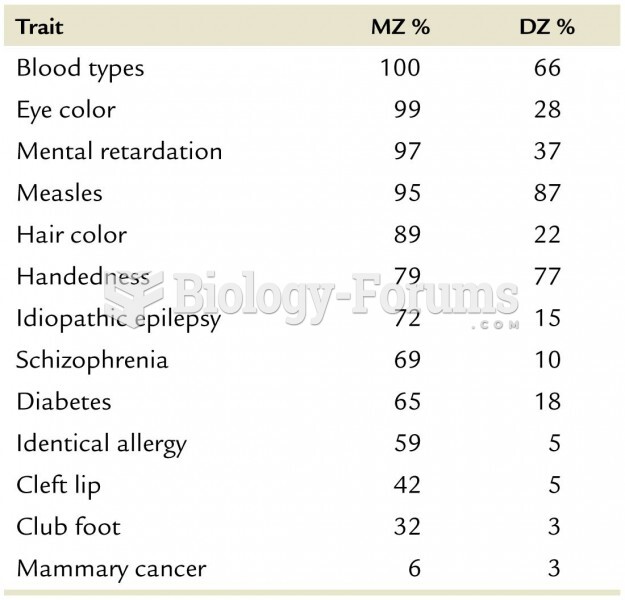|
|
|
Walt Disney helped combat malaria by making an animated film in 1943 called The Winged Scourge. This short film starred the seven dwarfs and taught children that mosquitos transmit malaria, which is a very bad disease. It advocated the killing of mosquitos to stop the disease.
Blood in the urine can be a sign of a kidney stone, glomerulonephritis, or other kidney problems.
Glaucoma is a leading cause of blindness. As of yet, there is no cure. Everyone is at risk, and there may be no warning signs. It is six to eight times more common in African Americans than in whites. The best and most effective way to detect glaucoma is to receive a dilated eye examination.
Aspirin is the most widely used drug in the world. It has even been recognized as such by the Guinness Book of World Records.
Approximately 500,000 babies are born each year in the United States to teenage mothers.







